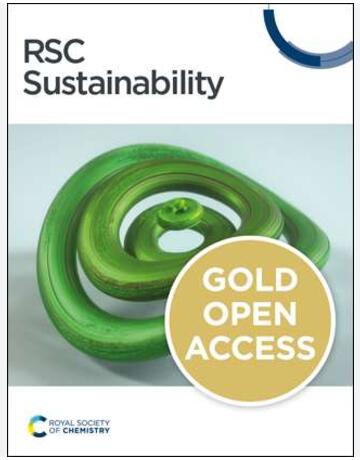The Use of Energy Simulations in Residential Design: A Systematic Literature Review
IF 3.3
3区 环境科学与生态学
Q2 ENVIRONMENTAL SCIENCES
引用次数: 0
Abstract
The Industrial Revolution and technological advancements have led to the densification and expansion of cities. In urban environments, residential buildings are common, and optimizing energy use in these structures is achieved by focusing on key parameters during the early design phases. These parameters can be tested through simulations. This study aims to define the scope of energy simulations in residential design to contribute to design optimization and reduce energy consumption. A systematic literature review and qualitative analysis were employed, using the PRISMA protocol for data collection and Vosviewer and Bibliometrix tools for bibliometric analysis. The keywords obtained were subjected to qualitative analysis. The research revealed the absence of a standardized approach in simulation studies. To address this, a nine-step framework has been proposed. A discrepancy between the objectives of certain studies and the keywords used was identified. Themes were created based on the studies’ objectives, and keywords were recommended accordingly. Several studies have determined the energy potential of buildings during the occupancy phase. Simulations should be integrated into the early design phase to facilitate pre-design optimization. A framework for residential simulation methodology was developed, believed to enhance the validity of studies and facilitate result comparisons. Minimizing energy consumption is a primary objective in residential buildings. The recommendations developed align with the United Nations’ Sustainable Development Goal 11: Sustainable Cities and Communities.在住宅设计中使用能源模拟:系统文献综述
工业革命和技术进步导致了城市的密集化和扩张。在城市环境中,住宅建筑非常普遍,而优化这些建筑的能源使用则需要在早期设计阶段关注关键参数。这些参数可以通过模拟进行测试。本研究旨在确定住宅设计中能源模拟的范围,以促进设计优化和降低能耗。研究采用了系统的文献综述和定性分析方法,使用 PRISMA 协议进行数据收集,使用 Vosviewer 和 Bibliometrix 工具进行文献计量分析。对获得的关键词进行了定性分析。研究表明,模拟研究缺乏标准化方法。为此,提出了一个九步框架。某些研究的目标与所使用的关键词之间存在差异。根据研究目标创建了主题,并据此推荐了关键词。多项研究确定了建筑物在使用阶段的能源潜力。模拟应纳入早期设计阶段,以促进设计前的优化。我们制定了住宅模拟方法框架,相信该框架将提高研究的有效性,并促进结果比较。尽量减少能源消耗是住宅建筑的首要目标。提出的建议符合联合国可持续发展目标 11:可持续城市和社区。
本文章由计算机程序翻译,如有差异,请以英文原文为准。
求助全文
约1分钟内获得全文
求助全文
来源期刊

Sustainability
ENVIRONMENTAL SCIENCES-ENVIRONMENTAL SCIENCES
CiteScore
6.80
自引率
20.50%
发文量
14120
审稿时长
17.72 days
期刊介绍:
Sustainability (ISSN 2071-1050) is an international and cross-disciplinary scholarly, open access journal of environmental, cultural, economic and social sustainability of human beings, which provides an advanced forum for studies related to sustainability and sustainable development. It publishes reviews, regular research papers, communications and short notes, and there is no restriction on the length of the papers. Our aim is to encourage scientists to publish their experimental and theoretical research relating to natural sciences, social sciences and humanities in as much detail as possible in order to promote scientific predictions and impact assessments of global change and development. Full experimental and methodical details must be provided so that the results can be reproduced.
 求助内容:
求助内容: 应助结果提醒方式:
应助结果提醒方式:


